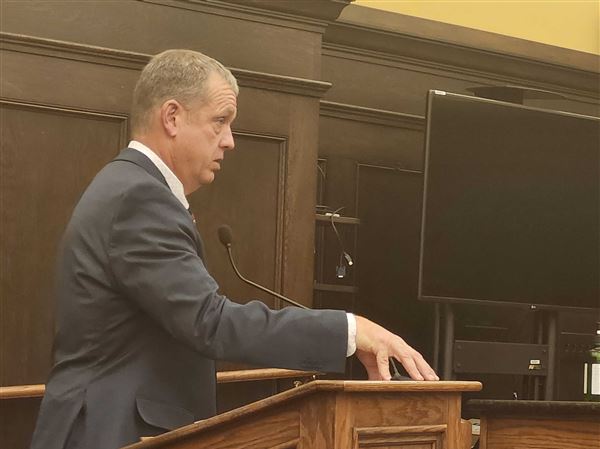Gov. Tom Wolf signed a law Friday intended to bring Pennsylvania into compliance with Real ID, a federal mandate for standardizing the minimum security features on driver’s licenses and making sure people can’t hold licenses from various states simultaneously.
The law ensures that Pennsylvanians who need to travel by plane and enter certain federal buildings and high-security sites will continue to be able to go about their business. However, it also allows those who want to stand on principle to do so by keeping the current form of driver’s license, as long as they accept the restrictions that come with it. It was a well-devised response to a Catch-22 — one that other states have adopted, too.
Pennsylvania had resisted the federal mandate for years — even passed a law forbidding compliance — because of concern about cost and fear that Real ID was creating something akin to a national identification card. The federal government compromised on some points, then got tired of waiting. Last year, it told Pennsylvania and a handful of other noncomplying states that failure to take action would leave their residents unable to enter certain federal buildings this summer or fly even domestically next year, unless they were to use passports instead of driver’s licenses for identification purposes.
That set off a scramble to bring the state to heel. The bill Mr. Wolf signed Friday repeals the previous law forbidding compliance and offers residents two options: getting a driver’s license compliant with Real ID requirements or keeping the style of license they have now. The law forbids the state from forcing residents to get the Real ID license but it says it must make people aware that continued use of the standard one will restrict access to federal buildings and commercial airplanes.
That’s a win for people who don’t want the Real ID licenses, and there can be any number of reasons for that. Maybe they don’t fly or spend much time in federal buildings and see the need for the new license. Maybe they consider Real ID an intrusion by the federal government and won’t agree to go along with it. Maybe they won’t want to pay what might be a higher cost for Real ID-compliant licenses or go through the application process.
Pennsylvania’s new law requires the Department of Transportation to make an annual report on the cost of implementing Real ID and to track the numbers of residents choosing Real ID and standard licenses. Kurt J. Myers, PennDOT’s deputy secretary for driver and vehicle services, said he and his staff now will begin working with federal authorities on the logistical aspects of compliance.
Mr. Myers said Real ID has some commonsense provisions and that some concerns — about the creation of a national database of driver information, for example — are unfounded. Still, state officials have crafted a system that lets residents make their own decisions, and that was the right way to go.
First Published: May 30, 2017, 4:00 a.m.

















